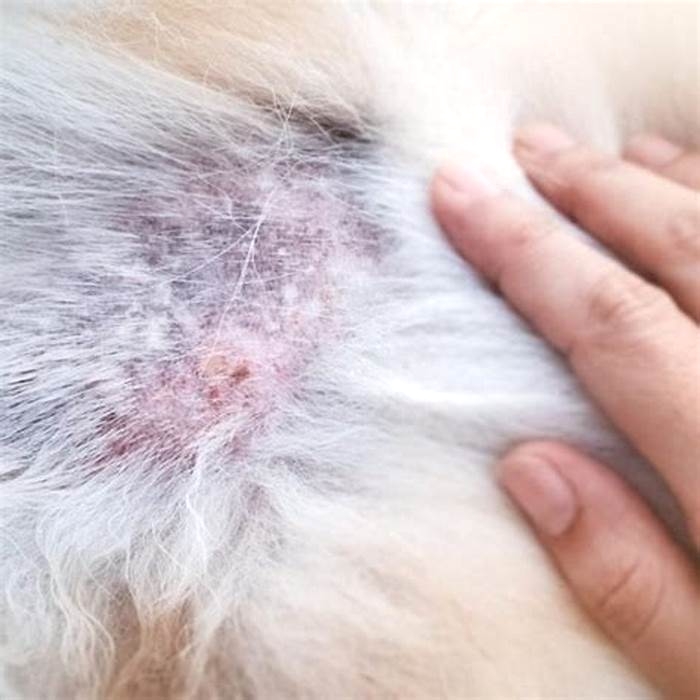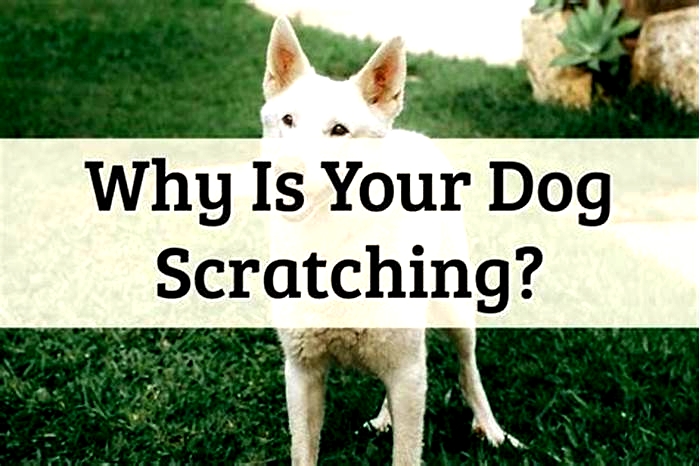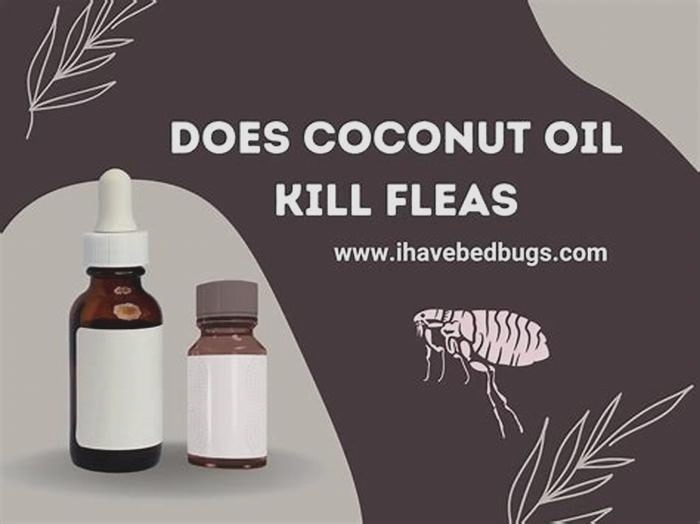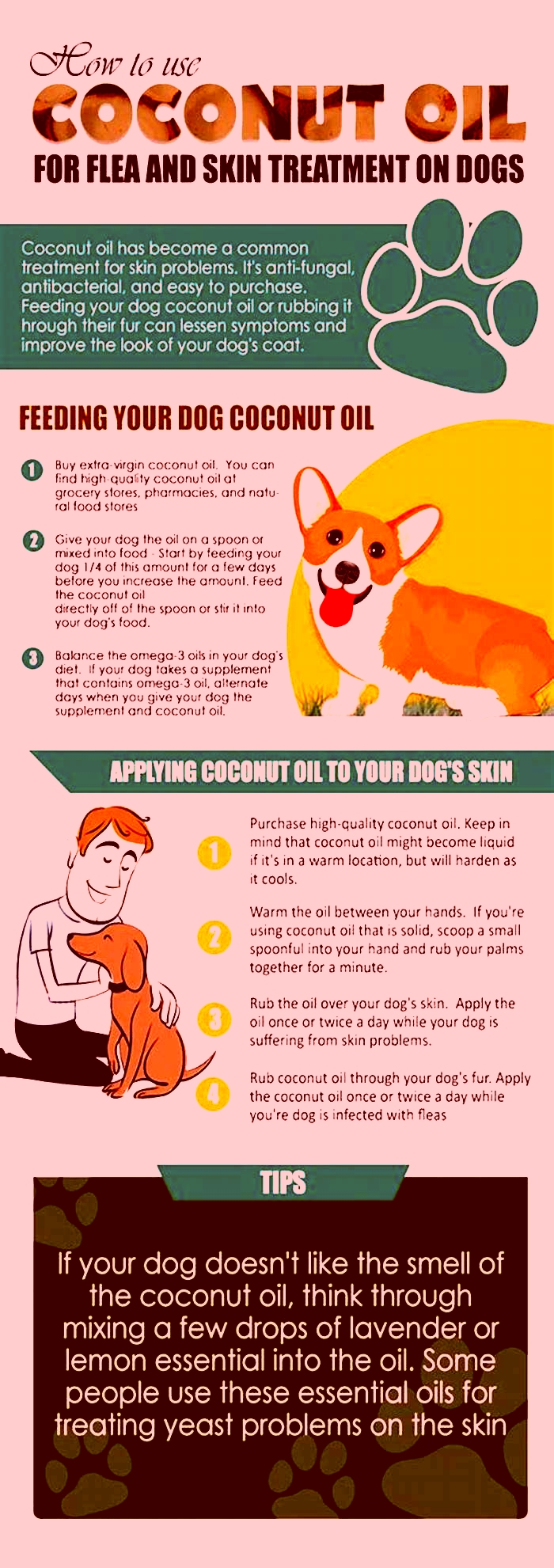Can my dog be scratching and not have fleas
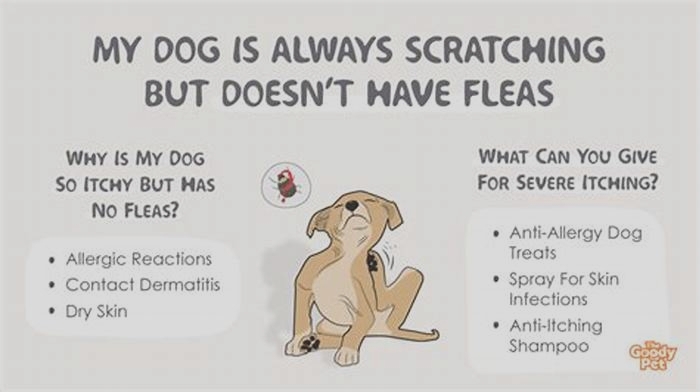
Dog Scratching But No Fleas? Should You Worry?
Fleas are the first thing dog owners think about when they see their dogs scratching. However, there are many reasons why dogs get itchy, and this time, fleas might not be the ones to blame. If your dog is itchy, youre probably wondering why is my dog constantly scratching but has no fleas?
Compulsive scratching is common in dogs and happens for a variety of reasons. In addition to fleas, environmental or food allergies can also make a dog feel itchy. Anxiety or boredom, dry skin, hot spots, parasites like ticks and mites, mange, bacterial and yeast infections can make a dog scratch.
As you can see, there are many issues, besides fleas, that can cause compulsive scratching.
If youve eliminated fleas as the reason for your dogs itch, keep on reading! In this article, well explore all potential reasons for itchy skin and offer effective solutions.
Reasons Why Your Dog Is Scratching Without Fleas
When a dog is scratching non-stop, most dog owners assume they have another flea infestation on their hands. However, if fleas have been ruled out as the cause of your dogs itchy skin you should look for other causes.
Common causes of itchy skin in dogs are:
1. Nutritional Allergies
Though food allergies arent as common in dogs as they are in people, some dogs can be allergic to certain foods. Grains such as wheat, corn, and soy, as well as chicken, dairy, and beef, are the most common food allergens for dogs (source).
2. Environmental Allergies
Seasonal or environmental allergies arent uncommon in dogs and are most often seen in spring, summer, and fall. Dogs suffering from environmental allergies can be allergic to many different things including carpeting, dust mites, mold spores, pollen, blooming plants, trees, weeds, and pesticides.
3. Anxiety or Boredom
Dogs who suffer from boredom or anxiety may compulsively scratch themselves as a way of soothing their nervousness. This type of intense itching and scratching is called neurological dermatitis by veterinarians.
4. Dry Skin
Cold weather, poor hydration, and lack of omega fatty acids in a dogs diet can cause a dog to develop dry skin. Dry skin is especially common during winter months and in areas with low humidity.
5. Hot Spot
Also known as moist eczema, hot spots are caused by moisture being trapped on a dogs skin for extended periods of time. Dogs with thick, dense, or matted coats are more likely to develop this condition since a dogs skin can stay wet long enough for bacteria to reproduce and cause skin lesions.
6. Mange
Mange is a skin condition caused by mites that cant be seen with a naked eye. These nasties burrow deep into a dogs skin, creating inflammation and open wounds that can become infected.
Sarcoptic mites, also called scabies, cause hair loss, flaky skin, intense scratching, and open wounds all over a dogs body. Demodex mites, known as mange, are commonly seen in young dogs or old and sick dogs and cause less scratching but more hair loss.
7. Skin Infections
Also known as infectious dermatitis, or pyoderma, skin infections can be caused by bacteria, fungi, and yeast that lead to painful skin diseases and itchy skin.
Ringworm is a common skin infection in dogs that causes hair loss in circular patches, itching, and can be passed to humans and other dogs.
On the other hand, staph infections are the most common bacterial skin infections found in dogs. The problem with these bacterial infections is that dogs and humans can transmit the infection between one another.
8. External Parasites
Fleas arent the only external parasites dogs can get. Though flea bites can cause intense scratching so can ticks and mites.
Cheyletiella mites, also known as walking dandruff, can only be seen with a microscope. They cause hair loss, flaky and irritated skin in humans, so its important to prevent a dog from getting them in the first place, otherwise, you might get infected as well.
How Can I Get My Dog to Stop Scratching?
Because there are so many different reasons why dogs scratch you must figure out the cause of this behavior to find the best treatment plan. Depending on the exact cause of your dogs scratching the treatment might include:
1. Changing Diet
If an allergic reaction to food is making your dog itchy, eliminating potential allergens such as wheat, or beef can help your dog feel better. Feeding a limited ingredient dog food can help you determine which specific food your dog is allergic to.
2. Addressing Anxiety & Boredom
Sometimes, dogs use compulsive scratching as a means to relieve stress, fear, or lack of mental stimulation. To prevent this from happening, keep your dog exercised, play with it and spend a lot of time together.
3. Prevent this Behavior
Compulsive scratching can cause serious damage to your dogs skin and affect the quality of its life, so do everything you can to prevent this behavior from happening. Use bitter sprays and cone collars to discourage your dog from licking and scratching hot spots.
3. Use Medications
If your dogs scratching is caused by mange, bacterial infection, or other medical problem your vet will prescribe medication to treat the underlying issue. Your vet may recommend topical or oral antibiotics, steroids, or anti-itch creams to soothe hot spots or skin infections.
How Can I Relieve My Dogs Itching Without Fleas?
Mild cases of itchiness caused by dry skin, hot spots, and allergies can be successfully treated with home remedies. Here are some natural home remedies for itchy dogs you should try:
- Apple cider vinegar
- Colloidal oatmeal baths
- Coconut oil
- Chamomile and green tea soak
- Baking soda
- Aloe vera
- Black tea
- Calendula lotion
- Honey
- Garlic and lemon spray
However, if the persistent itchiness is making your dog uncomfortable, depressed, or restless, its time to call a vet.
Conclusion
Though common, fleas arent the only reason why dogs scratch. Persistent itching and scratching can be caused by many different things including allergies (food and environmental), mange, hot spots, skin infections, dry skin, anxiety, or boredom.
To stop your dogs scratching, you must find the underlying issue causing this behavior. Once you figure out the cause of your dogs itching, youll be able to come up with the best treatment plan for your dog.
Related Articles:
Why is my dog scratching? He hasnt got fleas!
Dogs do occasionally scratch, but if its frequent, incessant or distressing then something is amiss. Some dogs will lick or nibble rather than scratch. Many do this in private so watch out for red, sore skin, bald patches, or brown saliva staining where the fur has been licked.
Itching (technically called pruritus) is a sign, not a diagnosis or specific disease. Its probably the most common reason for owners to take pets to the vets, making up a large proportion of our consultations.
Fleas are elusive and VERY common. In warmer weather, flea eggs develop into adults quicker. Its important to carry out the following steps before discounting these critters.
How to check your dog for fleas
They move fast and hide well, especially in thick or dark coats, so are hard to find. Adults are 5% of the population. The rest exist as eggs, larvae and pupae within the environment. As one flea can lay 40-50 eggs per day, there dont need to be many adults to start a problem, so not finding a flea doesnt rule out fleas. Only in heavy burdens can you find them with ease.
Using a comb look for the dark gritty specks of flea faeces, often around the tail base and neck. These specks, when placed on dampened cotton wool, form a red tinge due to blood content.
Ive used a flea treatment; could it still be fleas?
Flea treatments need to have effective ingredients and be applied regularly. Breaks in protection allow fleas to feed and lay eggs in your home. Given 95% of their lifecycle resides in the environment, effective home treatments mustnt be forgotten during an outbreak.
Theres a baffling array of flea products out there containing different active ingredients. Products bought from shops or online may have not been tested rigorously for safety and efficacy. Get advice from your vets, especially in the face of an outbreak. In addition, veterinary treatments are often combined with ingredients to prevent other parasites like ticks or lungworm. They can help you pick a treatment that looks after your individual needs and lifestyle risks.
Many flea treatments need fleas to bite before being killed. If your dog is allergic to flea bite saliva (flea allergic dermatitis), you dont need many fleas for your dog to itch. As one flea can bite up to 400 times a day, a few can cause lots of irritation.
The itch is localised; what could this mean?
Look closely for any wounds, matts, foreign bodies such as splinters, or insect or tick bites. If your pet is scratching only its ears youll need a vet to look down the ear canals, checking for inflammation, infection or foreign bodies such as grass seeds.
My dog is scratching all over; what could this be?
The most common causes of itching are parasites, infections, and allergies.
We have already covered the most common parasite; the flea. There are also many types of
Mites.
Some can be easily seen with a microscope, others are more difficult to spot, and most are not visible with the naked eye. Sarcoptic mites usually cause intense itching and scabbing on the ears, chest, elbows and hocks. They are infectious, spread by other dogs or foxes, and affect humans.
A predominantly rabbit mite (Cheyletiella) less commonly affects dogs. Its spread by wild rabbits or other dogs. It appears like walking dandruff and can cause itching if the dog is hypersensitive, although usually doesnt. These mites will not live on humans but may cause skin irritation.
Demodex mites cause hair loss and scaling which can be local or general and, in certain forms, cause itching. The mite is not infectious to other animals or humans. If a secondary skin infection occurs, with severe cases this will cause intense itching.
If everything else has been ruled out, your dog is most likely suffering from an
Allergic skin disease.
Contact allergies arent common but can occur with a new shampoo or washing powder, for example. Think if you have changed anything recently.
Flea allergy dermatitis, which is common as mentioned, with lesions typically affecting the rump, back and neck.
The other two broad types are:
- Canine atopic disease (Atopy or Atopic Dermatitis): a reaction to environmental allergens like pollen causing seasonal signs, or house dust mites causing all-year signs.
- Cutaneous adverse food reaction (Food Allergy) is due to an allergic reaction to certain foods, that usually occurs all year round.
They have very similar signs so are hard to tell apart. Many dogs suffer a mixture of allergies, complicating things further. Usually, skin changes and itching are generalised, affecting the tummy and face more often, but can be local. Food allergies are more likely if your dog is less than 1 year old, but can happen at any age. They cause gut signs in one third of dogs. Atopy usually starts between 6 months and 3 years old.
Your vet may discuss starting a strict elimination food trial if an adverse food reaction is suspected.
Allergic skin diseases cannot be cured, only managed, and cause immense frustration for owners as well as being time consuming and costly, as management is lifelong.
Skin infections
These may involve yeasts or bacteria, and usually happen due to poor skin barrier function from an underlying allergic skin disease. It may be the first sign that your dog has allergic skin disease. Bacterial infections often appear in humid areas of the body like the ears, feet and groin as circular scaly patches, pimples or oozing sores but can be general. Yeast infections tend to be more greasy and generalised and can affect ears. These infections cause intense itching so need treatment but the underlying allergy mustnt be ignored. Prevention of infections is important for long-term management of allergic skin diseases.
Common things occur commonly so make sure all animals and the house are up-to-date with a safe, effective and recommended flea treatment. If the itch doesnt settle then a vet visit will be required.

